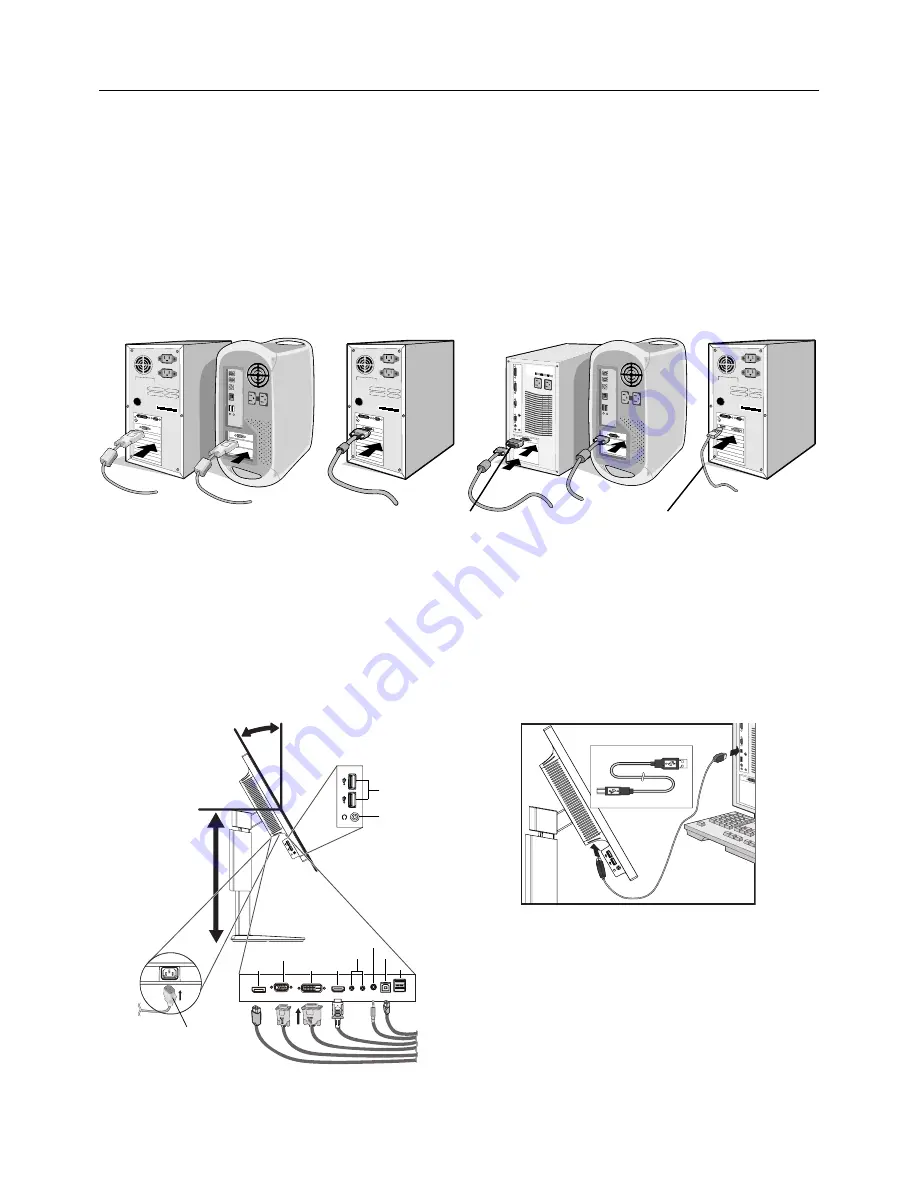
English-6
Quick Start
To connect the LCD monitor to your system, follow these instructions:
NOTE:
Make sure to read “Recommended Use” (page 3) before installation.
1. Turn off the power of your computer.
2.
For a PC or MAC with DVI digital output:
Connect the DVI signal cable to the connector of the display card in your system
(
Figure A.1
). Tighten all screws.
For a PC with Analog output:
Connect a 15-pin mini D-SUB signal cable to the connector of the display card in your
system (
Figure A.2
).
For a MAC:
Connect a Macintosh cable adapter (not included) to the computer, then attach the 15-pin mini D-SUB signal
cable to the Macintosh cable adapter (
Figure A.3
).
NOTE:
Some Macintosh systems do not require any Macintosh cable adapter.
For a PC with DisplayPort output:
Connect the DisplayPort cable to the connector of the display card in your system
(
Figure A.4
).
Figure A.1
Figure A.3
Macintosh Cable
Adapter
(not included)
Figure A.2
Figure A.4
DisplayPort cable
(not included)
NOTE:
1. Please use a DisplayPort cable with DisplayPort logo.
2. When removing the DisplayPort cable, hold down the top button to release the lock.
3. Place hands on each side of the monitor to tilt the LCD panel 30-degree angle and lift up to the highest position.
4. Connect all cables to the appropriate connectors (
Figure C.1
). When using the USB cable, connect the B type connector
to the USB upstream port on the right back side of the monitor and the A type connector to the downstream port on the
computer (
Figure C.1a
). If using the cord from a USB device, plug into one of the downstream ports of the monitor.
NOTE:
Incorrect cable connections may cause abnormal operation, damage display quality/components of LCD module and/
or shorten the module’s life.
Figure C.1
Power cord
30° Tilt
HDMI
DisplayPort
DVI
D-SUB
Figure C.1a
A Type
B Type
A Type
B Type
Highest
Stand
Position
Audio Input
USB Downstream
USB Downstream
Headphone
USB Downstream
ControlSync IN/OUT*
USB Upstream
USB Upstream
*: See page 23























